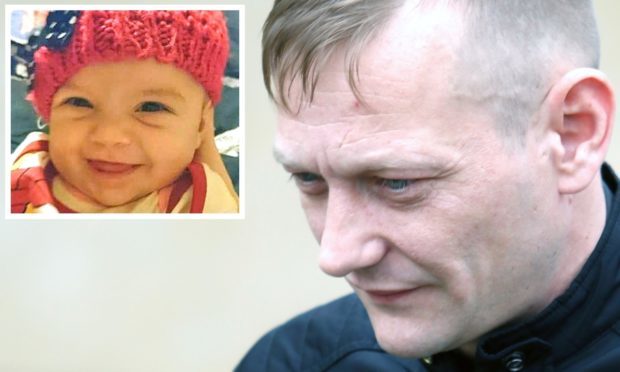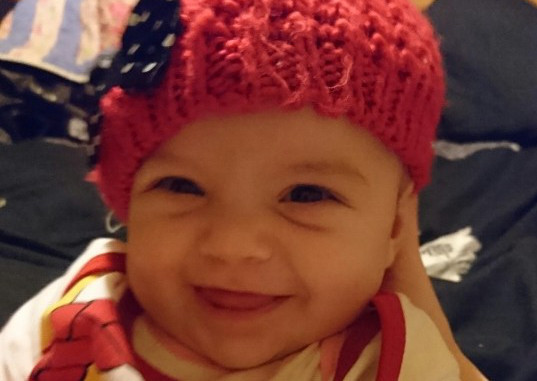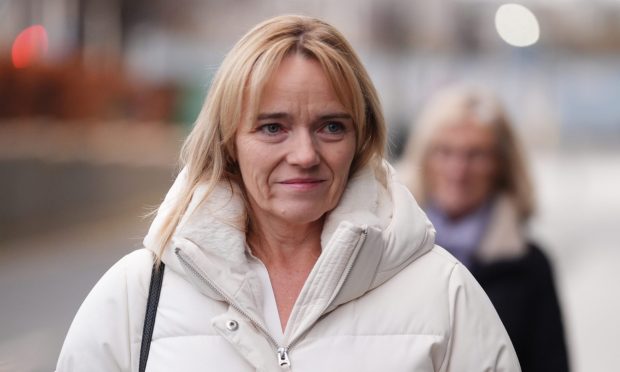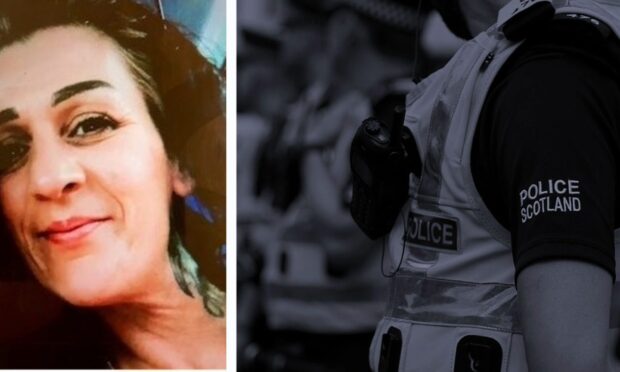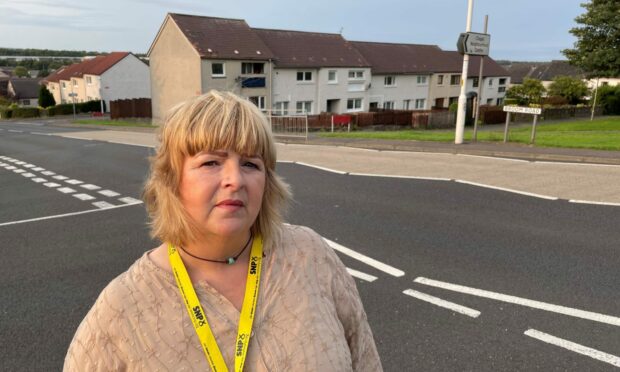A former soldier has been convicted of killing a baby in Buckhaven by repeatedly shaking her until her brain bled.
Gordon McKay, 38, pled guilty to the culpable homicide of five-month-old Hayley Davidson on Valentine’s Day 2016.
McKay had been accused of murdering his girlfriend’s daughter while he was looking after her at his home in Buckhaven, Fife, but admitted the lesser charge at the High Court in Livingston today.
Adjourning the case for background reports, judge Lord Uist told McKay he would pass sentence at the High Court in Edinburgh on May 10.
He continued McKay’s bail meantime to allow him to spend time with his two sons but warned he faced an “inevitable” prison sentence.
The court heard Hayley’s mother Catherine Davidson lived a few doors away from McKay in West High Street, Buckhaven, after she split from Hayley’s father, and had developed an “obsessive” relationship with the accused.
Advocate depute Jane Farquharson, prosecuting, said forensic tests showed the pair had smoked cannabis together with Hayley in the room the night before the infant was fatally injured.
Miss Farquharson said Mrs Davidson left Hayley alone with McKay for an hour on the morning of February 14 2016 while she got her two older daughters ready for a planned day out with her grandmother.
At 11.19am, Mrs Davidson got a text message from McKay saying: “Come quick!” and she ran to his house with her daughters.
Miss Farquharson said: “Mrs Davidson walked into the living room where she found the accused leaning over her daughter Hayley, administering CPR.
“She describes screaming at her partner: ‘What happened?’ and he replied: ‘Phone an ambulance, she’s not breathing!’ which she did from his mobile telephone.”
She said the call handler instructed McKay how to perform age-appropriate CPR by placing Hayley on a hard surface.
Paramedics who arrived within seven minutes found Mrs Davidson in a distressed state and McKay giving CPR to Hayley, who was “pale, floppy and unresponsive”.
Before the ambulance had arrived, she said, McKay had told his partner that he had left Hayley alone to run a bath.
“When he returned to check on Hayley she had wriggled down the beanbag. He stroked her face and found her unresponsive.
“Mr McKay then described picking Hayley up and giving her a shake.”
In response to police questioning at the hospital, he described shaking the baby three or four times by holding her shoulders, and demonstrated what he had done.
Miss Farquharson said: “He described her head as whipping backwards and forwards. His demonstration elicited an immediate response from Catherine Davidson: ‘Are we taking about shaky baby syndrome?’”
Prompted by his disclosures, doctors carried out scans which indicated a bleed around little Hayley’s brain consistent with a significant head trauma, and in particular a shaking type injury.
The advocate depute added: “The bleed to her brain was not a slow one and Hayley’s symptoms would have been obvious following injury.
“Within the Royal Hospital for Sick Children in Edinburgh the nature and number of Hayley’s historical injuries were confirmed, as was the nature and mechanism of her life-threatening head injury.”
“Intimate relations”
Medical experts diagnosed a “non-survivable head injury and, on February 17 after brain stem tests confirmed no activity, care was withdrawn and Hayley died.
She said the baby’s mother “seemed more concerned for the welfare of, and attentive to, Mr McKay” than tending to the needs of her critically injured daughter.
“In a strongly worded police statement, a family liaison officer describes interrupting ‘intimate relations’ within the family room when she went through to advise Mrs Davidson that Hayley’s life support machine was about to be switched off.
“At the time of Hayley’s death Mrs Davidson held her daughter in her arms. After a few minutes she indicated she needed to be with Mr McKay.”
Previous injuries
Miss Farquharson revealed Hayley had previously had hospital treatment for a broken arm on New Year’s Day 2016 – three months into McKay’s relationship with her mother.
She said: “Gordon McKay took responsibility for what he described as the ‘accident’ that caused it. His account was deemed consistent with her injury and the clinical team did not view the fracture as suspicious.
“Social services were notified and did not intervene. Fife protocol has now changed as a result of this case.
“Examination of Hayley upon her admission on 14 February 2016 during the time she spent in hospital prior to her death and scrutiny of the various X-rays and scans taken at this time, revealed a number of healing fractures over various parts of her body and of different ages.
“The process of reviewing X-rays has since changed in Fife and all X-rays of infants under 12 months will now be viewed by a paediatric radiologist.”
Solicitor advocate John Scott, defending, said McKay – who has two sons of his own living with his former partner in Inverness – was an ex-soldier who had served four years in the army, including duty in the Middle East.
He said the defence was in the process of obtaining a psychiatric report to show whether he suffered PTSD as a result of his military service.
“Grave crime”
Deferring sentence, Lord Uist told McKay: “You have pled guilty to the grave crime of causing the death of a baby by shaking her.
“As Mr Scott has recognised on your behalf, this is bound to result in a custodial sentence.
“I must, however, before proceeding to sentence, obtain a criminal justice social work report on you as you have never previously served a custodial sentence.
“I am prepared to continue bail, but this must not be taken by you as a sign that a custodial sentence will not follow.”
McKay declined to comment as he left court with members of his family and was ushered into a waiting car by family members.
